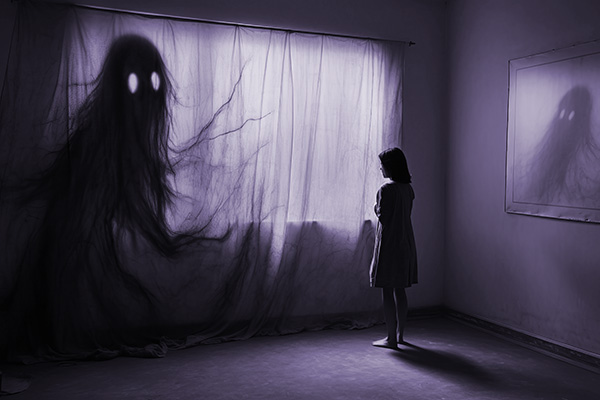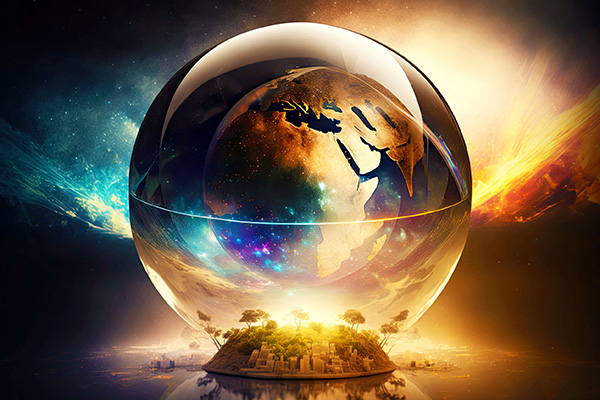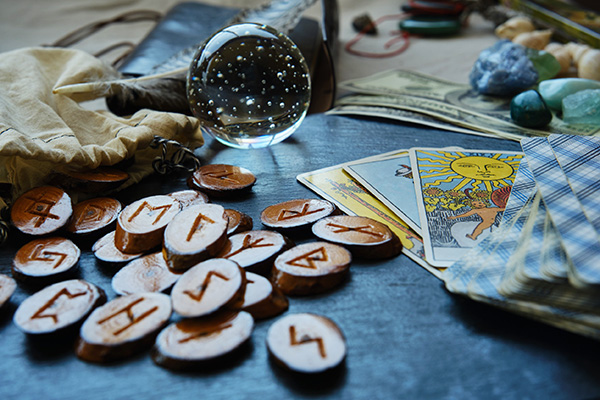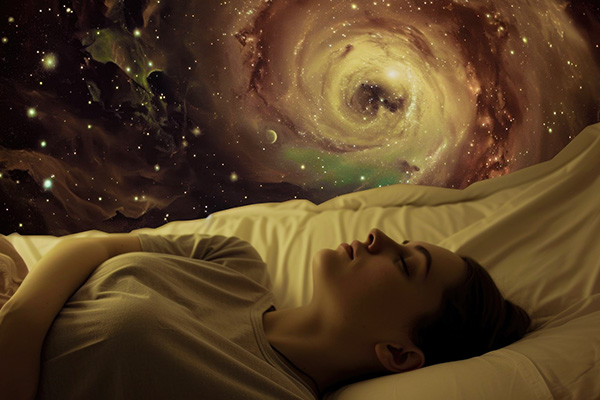self-knowledge
Overcoming Your Inner Saboteur
 Have you ever wondered why people sometimes try to ruin an ideal opportunity in their life, or deliberately sabotage a promising relationship?
Have you ever wondered why people sometimes try to ruin an ideal opportunity in their life, or deliberately sabotage a promising relationship?
Even though I have done thousands of readings over the years, I cannot help but still be surprised when I work with people who are in the process of sabotaging a wonderful relationship or alienating a loving, caring partner. Reading for people of all ages and walks of life around the world has shown me that this behavior is relatively common.
Not all psychic readings are about difficult relationships, difficult or cheating partners, or boring marriages. Sometimes they are about perfectly wonderful relationships that one of the partners is doing their best to destroy!
In these relationships, the saboteur consciously or unconsciously creates a toxic scenario or behaves in a dysfunctional way that will ultimately lead to a breakup. For example, the saboteur will begin to find fault with their partner, subtly push them away, or find reasons to walk away from the commitment.
Relationship readings for self-saboteurs often begin with them saying something like: “Well, things are rosy now, but they always start out that way,” or “Knowing my luck, she’ll soon get bored with me,” or “To be honest, things are so good with him, I’m just waiting for the other shoe to drop!”
It reminds me of my grandmother, who was abandoned by my grandfather when my mother and her sister were very young. She used to say, “All men are gorillas!” I later realized that my mother had adopted the same mindset.
Tarot Forecast June 2024: The Lovers
 This month the universe presents us with the The Lovers. This Major Arcana card predicts the energies of passion, choice, connection and relationships as the tone for the month ahead. The primary energies this month are harmony, balance and unity. The Lovers card represents a time of deep connection and self-discovery with yourself and others.
This month the universe presents us with the The Lovers. This Major Arcana card predicts the energies of passion, choice, connection and relationships as the tone for the month ahead. The primary energies this month are harmony, balance and unity. The Lovers card represents a time of deep connection and self-discovery with yourself and others.
The Lovers card is rich in symbolism, encompassing themes of connection, choice, and duality. It can represent romantic relationships, partnerships, or a harmonious balance between different aspects of the self.
This card usually symbolizes deep emotional bonds, love, and harmony in romantic relationships. It can signify the beginning of a new relationship, the deepening of an existing one, or the reconciliation of differences. It also represents the magnetic attraction and chemistry between lovers.
The Lovers card sometimes indicates instead an important choice or decision to be made. It emphasizes the importance of making choices that are consistent with one’s true self and values.
It can also represent moral dilemmas or ethical choices, encouraging us to follow our moral compass and make decisions based on integrity and truth. It can be a call to evaluate and realign with personal beliefs and values.
It also suggests duality and the balance between two forces, whether masculine and feminine, conscious and unconscious, or different aspects of one’s personality. It emphasizes the need for harmony and balance in relationships and within oneself. It’s about finding a balance between desires and responsibilities, emotions and intellect.
Psychic Guidelines For Mercury Retrograde
 Many people are familiar with the astrological transit known as Mercury Retrograde, which occurs three or four times a year, and how it affects our lives with communication mishaps, technological glitches and misunderstandings.
Many people are familiar with the astrological transit known as Mercury Retrograde, which occurs three or four times a year, and how it affects our lives with communication mishaps, technological glitches and misunderstandings.
What is less well known is how it affects psychic reading. Over the years, I have noticed the influence of this astroligical aspect in many of my psychic readings during retrogrades. Since we are currently in the midst of another Mercury Retrograde, I thought it might be a good time to explore this phenomenon in more detail.
If you are unfamiliar, Mercury Retrograde is an astrological phenomenon that occurs when the planet Mercury appears to be moving backwards in space. This is actually an optical illusion caused by the Earth’s orbit overtaking Mercury’s closer orbit to the Sun.
We are currently halfway through the first Mercury retrograde for this year, which will last until April 25. The next two retrogrades for 2024 will be August 4 to August 28 and November 25 to December 15.
In astrology, Mercury is the planetary ruler of communication, travel, and information processing. So, when Mercury is retrograde, these areas of our lives tend to be most affected. People often report experiencing miscommunication, travel delays, and technical problems during Mercury retrograde. During this time, you may also feel that your life is on hold or that your goals and plans are not progressing. Continue reading
A Foundation Of Well-Being For The Psychic Medium
 I recently enrolled in a year-long mediumship development course. One of the introductory topics we have been exploring in the course material is the importance of self-awareness and recognizing what affects your personal and spiritual well-being.
I recently enrolled in a year-long mediumship development course. One of the introductory topics we have been exploring in the course material is the importance of self-awareness and recognizing what affects your personal and spiritual well-being.
This is crucial in psychic and mediumship work, as various factors can affect one’s overall well-being and ability to perform optimally during a reading. As a psychic medium, you have an obligation to provide the best possible guidance to your clients by taking good care of yourself.
And even if you follow various self-care practices and know what you need to do to maintain your well-being, there will be days when you simply do not feel your best. Therefore, it is also important to be self-aware and able to recognize when you are out of alignment with the source of your being or feeling “out of sorts.”
The mediumship course explores several interesting topics and aspects of self-awareness beyond what is generally experienced on a daily basis. For example, negative energy in your environment, tension and conflict in relationships, and worries about people, pets, or finances. It is also important to recognize that we are all unique and that what may significantly affect one individual may not have the same effect on another.
The Spiritual Practice Of Rune Reading
 I have recently reintroduced rune reading into my daily spiritual routine. I had briefly dabbled in it a few years ago when I was exploring various methods of divination.
I have recently reintroduced rune reading into my daily spiritual routine. I had briefly dabbled in it a few years ago when I was exploring various methods of divination.
But this time, as my quest has become more personal due to recent events in my life, and I found myself remembering much of what I had learned years ago, the decision to use the runes again has proven to be a deeply enriching experience.
I have since discovered that the runes are a fantastic spiritual tool for deeper introspection, inner guidance, and connection to the universal spiritual principles that underlie these small tablets of ancient wisdom.
The term “rune” itself means “secret” or “mystery” in Old Germanic languages, reflecting their traditional use for various purposes, including writing, divination, and magical practices. Each runic tablet or stone contains a character from the ancient alphabets of early Germanic and Scandinavian cultures, including the Elder Futhark, which is the oldest form of the runic alphabet.
The Elder Futhark dates from the 2nd to 8th centuries and consists of 24 runes, each with its own unique meaning and symbolism. I use the Elder Futhark, which is the most commonly used rune set in divination practices, just as the Rider-Waite Tarot deck is the most commonly used in cartomancy.
Reclaim Your Personal Power With ‘Sat Nam’
 As a Kundalini Yoga teacher, I had the unique privilege of studying with Yogi Bhajan, the yoga master who introduced Kundalini Yoga to the Western world. Before he passed away in 2004, Yogi Bhajan gave me my spiritual name, Satya Kaur, which essentially means “princess” or “lioness” who embodies or strives to live by the principle of truth. It symbolizes a spiritual identity or path that focuses on integrity, authenticity, and the pursuit of spiritual truth.
As a Kundalini Yoga teacher, I had the unique privilege of studying with Yogi Bhajan, the yoga master who introduced Kundalini Yoga to the Western world. Before he passed away in 2004, Yogi Bhajan gave me my spiritual name, Satya Kaur, which essentially means “princess” or “lioness” who embodies or strives to live by the principle of truth. It symbolizes a spiritual identity or path that focuses on integrity, authenticity, and the pursuit of spiritual truth.
Our soul identity is the key to our life journey and spiritual growth. For this reason, at the end of each Kundalini Yoga class, the teacher says “Sat Nam” to the students. The class then repeats these words back to the teacher. Because of the name Yogi Bhajan gave me, this mantra will always have a special place in my heart.
The phrase is a Gurmukhi term that translates to “Truth is my name” or “True identity.” It is used as a yoga mantra to center the mind, connect with one’s true self, and remind us of our true essence and reality beyond the physical and mental constructs of the external world.
Saying “Sat Nam” to others is similar to the greeting “Namaste,” which means “The divine in me bows to the divine in you,” or “The spirit in me salutes the spirit in you.” For me, sacred affirmations like “Sat Nam” and “Namaste” have even more power and meaning now in the dawning Age of Aquarius.
